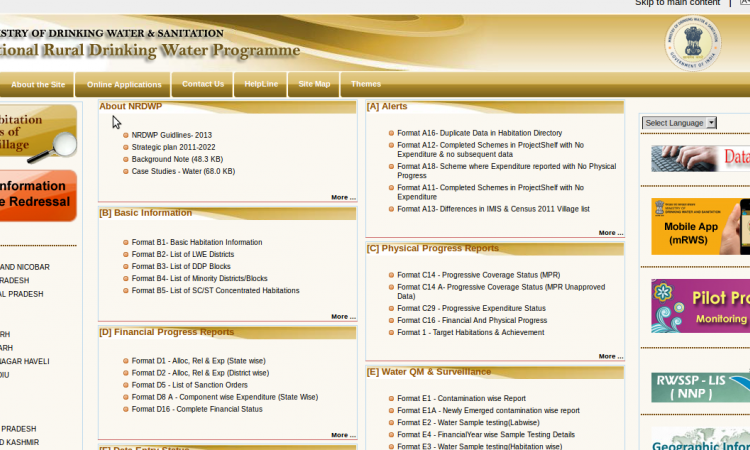
The Integrated Management Information System (IMIS) of the Ministry of Drinking Water and Sanitation (MDWS) provides ample information on the physical and financial progress of various programmes and schemes implemented by the government, with certain information made available upto the habitation level. This type of an information system is crucial to monitor and evaluate the various schemes being implemented. It can go a long way in contributing to evidence-based policy making.
Yet, using the IMIS to get at the number of habitations that have access to Piped Water System (PWS) in Karnataka gave varying results. For instance, according to a query on March 17, 2016, as of April 1, 2015, 48802 habitations had access to PWS in Karnataka. The number of habitations changed to 48602, 48680 and 48785 for the same query run on different days in the year 2016--March 31, June 10 and August 22 respectively! There could be many reasons for these varying numbers--no timely updates to the system, or no updates at all for certain habitations or there could also be a lack of understanding of what a PWS constitutes.
Nevertheless, it raises two important points--one, that there are flaws in data entry or in the IMIS system itself, which needs to be addressed, and two, whether the users of this data are ensuring that the data is of good quality. If the MDWS is providing funds for programmes based on this data, then it might as well ensure that the data is correct. The state government (RDPR - Rural Development and Panchayat Raj) should also be responsible to provide accurate and timely data irrespective of whether they get funds from the centre or not, since this data is of use to the RDPR as well.
The IMIS should not appear as a mere symbol of advancement in the application of IT in the governance of the water sector. This system is definitely dependent on huge resources (in the form of personnel and finances) to keep it running. The crux of the IMIS is having quality data, that is applied and understood uniformly across all regions (states, gram panchayats etc.). Poor quality data due to the lack of understanding of its usage or due to wrong data entry, render the system to be ineffective for use. Hope the government (centre or state) verifies this data and ensures that it is reliable.
The author is an independent researcher in the development sector. Views expressed in this article are those of the author's.
**Edited on 9th Sept 2016: The IMIS has now included a note at the end of the query result for all queries on PWS data for the years 2012, 2013...2015. The note states that "Data is continuously updated by state departments, hence date wise information may very". In effect, this implies that the IMIS data is not updated, not even for the years 2012, 2013 etc.. Yet, the MDWS is using this incomplete data for assessing its NRDWP programme and to provide funds.
/articles/right-data-create-right-policies